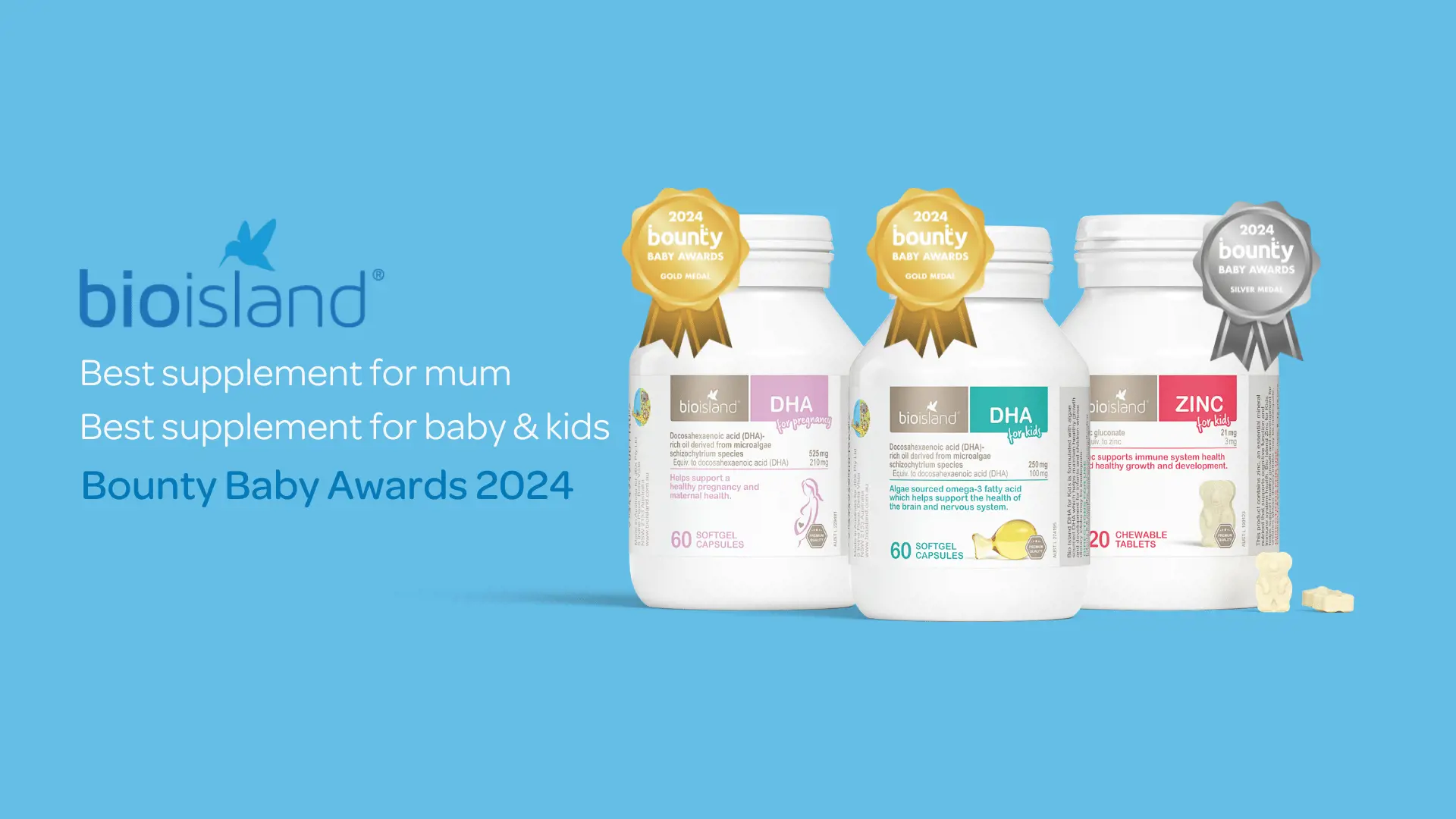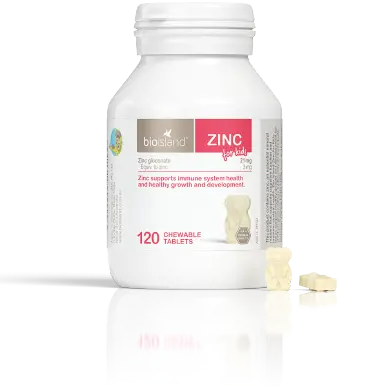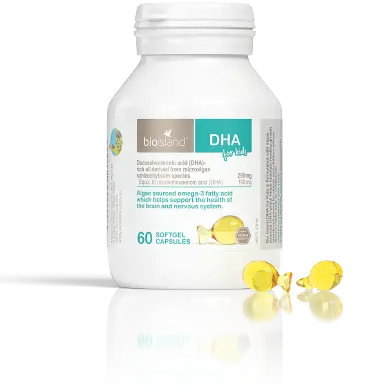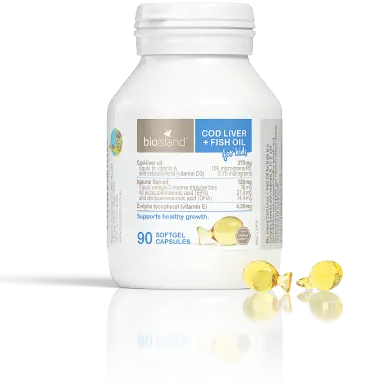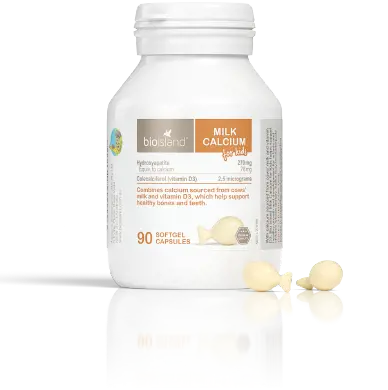
Looking after your child's immune health
Looking after your child's immune health
While getting sick is at times unavoidable there are ways to help support your child’s immune system and severity of symptoms.
Child & Baby Health
By Bio Island Nutrition Team
Seeing your child sick with a tummy bug or runny nose is hard in many ways, as a parent you wish nothing more that your child stays happy and healthy all year round. While getting sick is at times unavoidable there are ways to help support your child’s immune system to reduce the risk of infections and severity of symptoms from them.
When thinking about the immune system and why we get sick it is good to think of it like a machine that is constantly working inside of us, machines sometimes stop working correctly for many reasons. Our immune system also relies on other parts of the machine to run smoothly and at times needs a helping hand to keep things working correctly, this includes:
Well Balance Nutrients:
Your child’s nutritional intake through their diets can alter their immune response, this also includes what is not included in your child’s diet, as deficiencies and imbalances can increase the likelihood of infections and severity of symptoms. Nutrients are the fuel your body uses to keep parts of the machine in good working condition. Maintaining a well-balanced diet every day can help support their immune system, here are some common nutrients our immune system requires:
Vitamins
A, B’s, C, D and E
Food Sources:
Sweet Potato and Carrots: Vitamin A
Brown Rice and Broccoli: B group Vitamins
Strawberries and Kiwi Fruit: Vitamin C
Eggs and Mushrooms: Vitamin D
Avocado and Sunflower Seeds: Vitamin E
Minerals
Zinc, Selenium, Iron and Copper
Food Sources:
Beef and Sunflower Seeds: Zinc
Tuna and Brazil Nuts: Selenium
Beef and Spinach: Iron
Dark Chocolate and Hazelnuts: Copper
Healthy Fats
Omega 3’s EPA & DHA
Food Sources:
Salmon and Walnuts: EPA & DHA
Protein
Amino Acids Glutamine, Lysine and Arginine
Food Sources:
Eggs and Soybeans: Glutamine
Cheese and Mango: Lysine
Chicken and Chickpeas: Arginine
Good Guts:
In the lining of your guts you house cells and microbiota, about 70% of these cells make up your immune system. These Immune cells and gut bacteria which reside in your gut work hard to keep your immune system in balance. Gut bacteria for example regulates mucosal immune activity, protects against intestinal infection, produces short chain fatty acids, enzymes and vitamins and also modulates your metabolic activity. It is a lot of work, and by giving them a nice meal to digest and nice environment to work in they can do their work for our immune system. Here are some ways to help promote good gut health in your child:
- Eat foods that are rich in probiotics and prebiotics. Probiotics are living micro-organisms, known for being ‘beneficial bacteria’ they also feed of prebiotics. Good food combos with probiotics and prebiotics are yoghurt and banana’s, miso and wholegrain noodles or apple and kefir.
- Limit sugar intake and artificial sweeteners in foods and drinks, sugar is known to disrupt the gut. It also may help feed bad bacteria, which may lead to imbalances in gut health.
Hygienic Environments:
Common illnesses like stomach bugs, food poisoning and colds are spread through bacterial or viral infections, which can enter your body in different ways, such as your mouth, skin, nose or a bite. By creating clean spaces and practicing good personal hygiene you can help minimise the risks of these bugs. Some easy ways for your child to keep germs at bay include:
- Teaching them to always wash your hands before a meal, every time after they have been to the toilet and after sneezing or coughing.
- Keeping the rubbish bin lid firmly in place and disposing of tissues, wipes or other materials correctly by placing them completely inside the bin.
- Make sure they are careful when playing at home or in the garden. For cuts or open wounds, disinfect and protect yourself and the injured person.
- Always keep working areas in the kitchen and utensils clean, and regularly clean your bathroom.
- Ensure you wash clothes, bedsheets, towels and cushions regularly.
- Try to spend 15 minutes outside or in a room which has access to fresh circulated air and sunshine.
Rest & Restore:
A lack of sleep can impair our immune system functioning well and our sleep is altered during periods of infection, we are all familiar with the feeling of needing more sleep or feeling very lethargic when sick. This happens because of cytokines, small proteins which send signals to our body cells. During infections some cytokines signal to us that we need different types of sleep to help our bodies recover. Your body may need more NREM sleep during times of illness, this means ‘non rapid eye movement sleep’ in which you do not dream and are ‘out cold’. During NREM sleep your body repairs and regrows tissue, builds bones and muscle and helps strengthen your immune system. By getting a good night sleep your child can maintain a healthy immune system that assists their recovery, here are some quick tips for your next bedtime:
- Kids should always have a good quality sleep for at least 8 hours a night.
- Remove noises, bright lights and screens from bedrooms, this disrupts sleeping patterns and prevents your child falling asleep.
- If your child is having trouble falling asleep, get them out of bed and do a light activity (no screens) such as reading for 15 – 30 minutes and get them to try going back to bed.
- Create a routine for your child by always going to bed at the same time. Things like an evening bath, reading or tucking in are rituals that will signal to the brain it is time to sleep.
Hydration:
Drinking water throughout the day is good for staying healthy overall, it also helps the immune system in a few ways, such as:
- Helping your lungs, by staying hydrated it helps thin the lining of mucus which is present in your lungs. By thinning this mucus lining it may help reduce the risk of lung infections and the severity of symptoms.
- Keeps kidneys working efficiently, when kidneys are well hydrated they can keep doing their jobs of balancing electrolytes and filtering waste for your body which in turns helps support your immune system.
- When you are sick you can lose water rapidly through vomiting, diarrhoea and fever. Your body needs to replace lose fluids. You may also lose other nutrients like electrolytes and zinc through a loss of fluids.
Try to keep your child drinking fluids throughout the day by marking a water bottle or setting reminders. Sugary drinks should be avoided, this includes juices. Though some juices contain vitamins which help support our immune system (like vitamin C in orange juice) they are very high in sugar. Try adding a wedge of orange or lemon to water for a splash of vitamin C and flavour.
The best way we can fight infections is to make sure we do not catch it at all through prevention. If we think carefully about the cleanliness and hygiene of our environments, providing the right ‘fuel’ for our bodies and letting them rest so they do not get ill so easily we can help keep our children happy and healthy through good immune health.
This information does not take into account your personal situation and is general in nature. You should consider whether the information is appropriate for your needs and seek professional medical advice.
Always consult your healthcare professional before taking any supplements or if any concerns arise.


